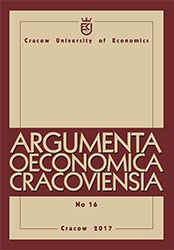A Longitudinal Study of Polish Attitudes to Emigration: A Latent Markov Model Approach
A Longitudinal Study of Polish Attitudes to Emigration: A Latent Markov Model Approach
Author(s): Ewa GengeSubject(s): Economy, Socio-Economic Research
Published by: Wydawnictwo Uniwersytetu Ekonomicznego w Krakowie
Keywords: latent Markov model; panel data; model-based clustering; emigration
Summary/Abstract: Latent class analysis can be viewed as a special case of model-based clustering for multivariate discrete data. When longitudinal data are to be analysed, the research questions concern some form of change over time. The latent Markov model is a variation of the latent class model that is applied to estimate not only the prevalence of latent class membership, but the incidence of transitions over time in latent class membership. In 2004, Poland joined the European Union, prompting a number of Poles to leave the country. To examine this event, a model-based clustering approach for grouping and detecting inhomogeneities of public attitudes to emigration from Poland was used. It focuses especially on latent Markov models with covariates, which additionally made it possible to investigate the dynamic pattern of Poles’ attitudes to emigration for different demographic features. depmixS4, Rsolnp and LMest packages of R were used.
Journal: Argumenta Oeconomica Cracoviensia
- Issue Year: 2017
- Issue No: 16
- Page Range: 37-49
- Page Count: 13
- Language: English

